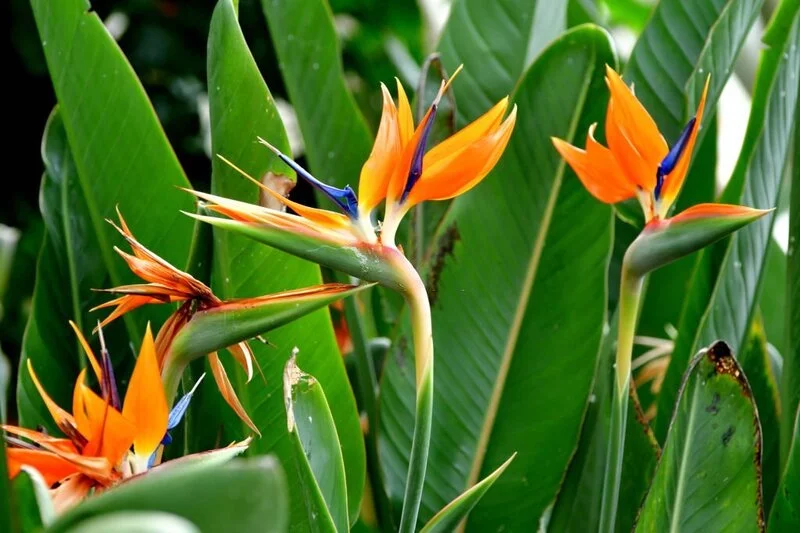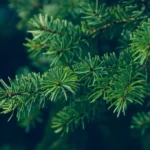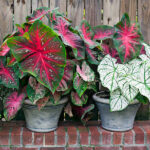The Bird of Paradise, with its exotic flowers and lush leaves, is truly a spectacle to behold. A popular houseplant, it’s known for bringing a touch of the tropics right into your living room. But, oh no! You’ve noticed your Bird of Paradise’s leaves curling up recently. Why is this happening? Does your plant need help? Fear not, fellow plant lover! In this article, we’re going to dive into the world of these beautiful plants and solve this curly mystery together.
- Feed your tropical plants with Miracle-Gro Tropical Houseplant Food to promote lush foliage
- Formulated with micronutrients including magnesium, manganese, copper, iron, and zinc
- Starts feeding instantly
- Apply once per week while watering during the spring and summer months
- Safe for all tropical plants, including spider plants, ZZ plants, snake plants, croton, pothos, monstera, fiddle-leaf figs, and more
Leaf Curling
Before we embark on our leaf curling investigation, let’s first understand what we mean by “leaf curling”. It’s exactly what it sounds like: the leaves, which are usually flat and broad, begin to curl or roll up. But why should you care about a few curly leaves?
Well, leaves are the life-source of the plant. They’re the plant’s food factory, turning sunlight into energy through photosynthesis. So, when leaves start acting strangely, it’s usually a sign that your plant is trying to tell you something.
Leaf curling in your Bird of Paradise can be an SOS signal, a way of your plant expressing that something in its environment is not quite right. Understanding and addressing these issues can help your tropical buddy thrive. Let’s uncover some common causes and their fixes!
Common Causes of Leaf Curling in Bird of Paradise
So, why are your Bird of Paradise leaves curling up like a scroll? It could be due to a handful of reasons. Let’s explore some of the most common culprits:
- Inadequate Watering: Like Goldilocks, your plant needs its water just right – not too much, not too little. Both underwatering and overwatering can cause leaf curling.
- Incorrect Lighting Conditions: Your plant loves sunlight, but too much direct light can lead to sunburn, and not enough light might leave it struggling to grow – both can cause the leaves to curl.
- Nutrient Deficiency: Just like us, plants need a balanced diet. If your plant isn’t getting enough of certain nutrients, it might react by curling its leaves.
- Temperature and Humidity Problems: Remember, the Bird of Paradise is a tropical plant. It loves warmth and humidity. Too cold, too dry, or sudden changes in temperature might upset it, causing its leaves to curl.
- Pests and Diseases: The presence of pests or disease can also lead to curling leaves as the plant tries to defend itself.
- Tailored for Birds of Paradise: Our Birds of Paradise Potting Soil, available in a generous 8-quart package, is specifically formulated to meet the unique requirements of these tropical beauties. This specialized blend provides the perfect balance of aeration, drainage, and nutrient enrichment for robust growth.
- Optimal Aeration for Healthy Roots: Birds of Paradise thrive with well-aerated roots, and our potting soil ensures just that. The blend’s composition promotes optimal air circulation around the roots, preventing issues like root rot and encouraging a healthy and expansive root system.
- Effective Drainage: The potting soil offers excellent drainage, preventing waterlogging and maintaining the right moisture levels for Birds of Paradise. This feature is crucial for preventing root diseases and ensuring the overall health and vitality of your plants.
- Nutrient-Enriched Medium: Enriched with essential nutrients, our Birds of Paradise Potting Soil provides a nutrient-dense medium to support the unique growth requirements of these tropical plants. This nutrient-rich composition contributes to lush foliage and vibrant blooms.
- Convenient 8-Quart Packaging: With 8 quarts of our specialized Birds of Paradise Potting Soil, you have ample material for potting or repotting multiple plants. The generous quantity in this convenient package makes it easy to care for your entire Birds of Paradise collection, whether you have them indoors as houseplants or outdoors in your garden.
Identifying the Specific Cause
Now, how do you figure out what exactly is causing your Bird of Paradise’s leaf curling? Your plant leaves clues that can help you play detective:
- Examine the leaves: Are they yellowing or have brown spots in addition to curling? It could be a watering or nutrient issue.
- Check the light: Is your plant in direct, hot sun all day or tucked away in a dark corner? It might be crying out for a lighting adjustment.
- Feel the soil: Is it soggy or bone dry? This can give you a clue about your watering practices.
- Inspect for pests: Do you see any tiny bugs on the leaves or stem? Your plant might be under attack!
- Assess the environment: Has there been a recent temperature drop or is your heating on full blast? The plant might be reacting to these changes.
By closely observing your plant and its environment, you can identify what might be causing the leaf curling and take steps to help your plant flourish.
Solutions to Prevent and Treat Leaf Curling
You’ve identified the problem, so what’s next? It’s time to save the day and your Bird of Paradise! Here are some solutions for common problems:
- Adjusting watering: If the soil is too dry, water your plant more frequently. If it’s too soggy, allow it to dry out before the next watering. Remember, your Bird of Paradise likes to be moist but not waterlogged.
- Modifying light exposure: If your plant is getting too much sun, move it to a location with bright but indirect light. If it’s not getting enough, consider a sunnier spot or even a grow light.
- Balancing soil nutrients: If a nutrient deficiency is the problem, a balanced houseplant fertilizer can help.
- Regulating temperature and humidity: Maintain a warm, humid environment for your plant. Avoid placing it near air vents or drafty windows.
- Managing pests and diseases: If pests are the problem, you might need to use a natural insecticide or even a gentle soap solution. If disease is suspected, consult with a local nursery or extension service.
Tips for Maintaining Healthy Bird of Paradise Plants
Now that you’re a curling leaf problem solver, let’s look at some tips to keep your Bird of Paradise vibrant and healthy:
- Watering: Your plant enjoys consistently moist soil but doesn’t like to sit in water. Always check the soil before watering.
- Light: Your Bird of Paradise loves bright, indirect light.
- Humidity: Mimic the tropical habitat by misting your plant or using a pebble tray to increase humidity.
- Nutrients: Regularly feed your plant with a balanced fertilizer during the growing season.
- Watch out for changes: Monitor your plant for any changes in leaf color, shape, or growth habits, as these can be early signs of trouble.
Conclusion
Your Bird of Paradise can be the crowning glory of your indoor jungle, with its majestic form and dramatic leaves. Understanding why its leaves might curl and knowing how to respond can make all the difference in maintaining a happy, healthy plant.
Remember, being a plant parent is all about learning, observing, and adjusting care as needed. You’ve got this! With a bit of practice and a lot of love, your Bird of Paradise will continue to thrive and bring you joy for many years to come.





